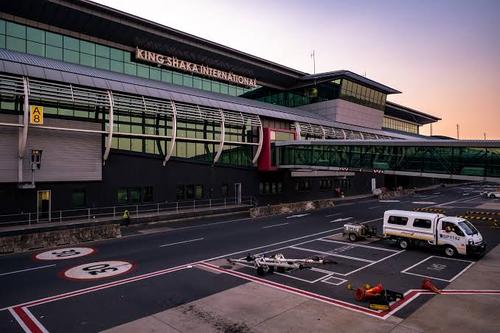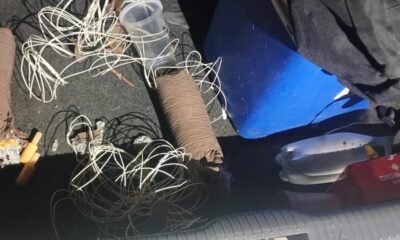News
“Forgotten She Was Human”: Court Slams SAPS Over Woman’s Nightmare Arrest at Durban Airport

A business trip to Turkey turned into a 10-day horror show for a Durban woman. Now, the police must pay.
For Cynthia Khedama, December 2011 was supposed to mark the start of a career-changing journey , quite literally. She was en route to Turkey with her employer, ready for business, when everything took a devastating turn at King Shaka International Airport.
What followed was not only a wrongful arrest but a deeply humiliating and inhumane ordeal that left emotional scars and now, more than a decade later, a Supreme Court of Appeal ruling that offers some measure of justice.
R580,000 in damages and a scathing rebuke of police conduct
After years of legal battles, the Supreme Court of Appeal (SCA) has ruled that Khedama is entitled to R580,000 in damages for what it described as “horrific suffering” and “cruelty” at the hands of police officers.
Originally, the KwaZulu-Natal High Court awarded her R580,000, but that was inexplicably slashed to R350,000 by a full bench on appeal. Khedama challenged the reduced amount, and won.
In a rare moment of judicial emotion, the SCA wrote:
“It was even forgotten that she belonged to the human race.”
The court didn’t mince its words, describing the treatment as so dehumanising that “one would perhaps be justified to think this was an effort to enable the appellant to be so frustrated as to rather take her life.”
The arrest that should never have happened
The incident began when two officers pulled her aside at the airport and questioned her about fraud. They also accused her of being involved with a “kwerekwere,” a slur used to refer to foreign nationals, because her boyfriend was Cameroonian.
When they found nothing suspicious in her luggage, she assumed she would be free to go. Instead, she was arrested, allegedly based on confusion involving a stolen ID document and unrelated fraud charges. Her explanation that she had previously reported the stolen ID to the SAPS was ignored.
Ten days of trauma, filth, and fear
Her nightmare unfolded in police cells that reeked of human waste and lacked even basic hygiene. Food was tossed to her like scraps through a hole in the door. No blankets. No chance to bathe. No change of clothes.
Transported from Durban to Cape Town, she was forced to sleep in a wet, leaking cell in Mthatha while it rained. She testified that she cried through the night, felt suicidal, and believed she might not survive the ordeal.
Even after fingerprints confirmed she wasn’t the person the police were looking for, she wasn’t immediately released. She had to endure yet another night in jail before bail was finally granted.
A damning look at SAPS treatment of detainees
The court ruling sheds light on the systemic abuse often experienced by people who are detained without proper cause — especially women. Despite South Africa’s constitutional promise that “everyone has the right not to be treated in a cruel, inhuman or degrading way,” Khedama’s case shows how that right is often violated.
The fact that it took nearly 14 years to reach a final ruling speaks volumes about how difficult it can be for ordinary citizens to hold police accountable.
Public outrage and social media reactions
On social media, South Africans have responded with shock, fury, and compassion. Many users questioned how something like this could happen and go unpunished for so long. A user on X (formerly Twitter) wrote:
“This isn’t just about one woman. It’s about a broken system that treats people like disposable objects.”
Another echoed the sentiment:
“The SAPS have no business policing human beings when they forget what being human means.”
A bigger story behind a single case
While Khedama’s case is heartbreaking on its own, it opens up a wider conversation about profiling, racial discrimination, and abuse of authority. The reference to her boyfriend being a foreign national and the use of a slur like “kwerekwere” speaks volumes about the xenophobia that can fuel such abuses.
Civil society groups have called for internal SAPS reforms and more serious disciplinary action against officers found guilty of such misconduct.
The road to healing
Khedama’s name will now be linked to one of South Africa’s most disturbing wrongful arrest cases, but it’s her courage to challenge the system that stands out. She fought back, not just for compensation, but for dignity.
The court may have given her some justice. But the question remains: How many others never get their day in court?
If you’ve experienced wrongful arrest or abuse by police in South Africa, organisations like the Legal Resources Centre (LRC) and Lawyers for Human Rights (LHR) offer free legal advice and support.
Let’s keep telling these stories and demanding better.
{Source: IOL}
Follow Joburg ETC on Facebook, Twitter , TikTok and Instagram
For more News in Johannesburg, visit joburgetc.com


























